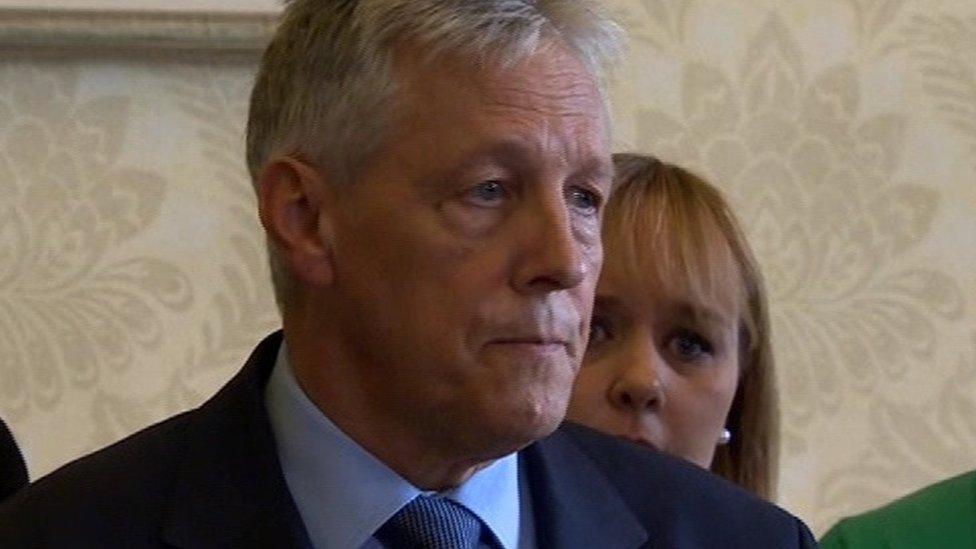Belfast must recover spirit of optimism
- Published
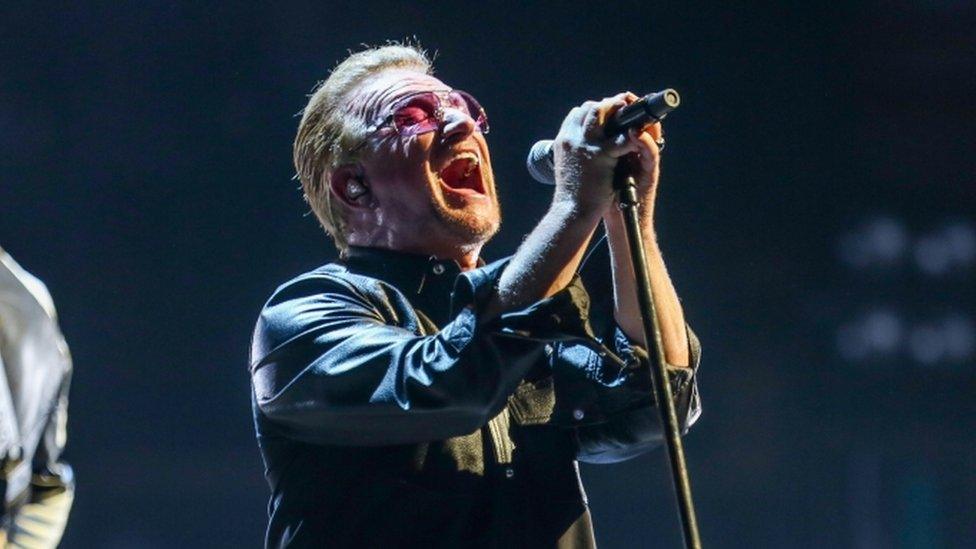
U2 played a rally in support of the Northern Ireland peace process in 1998 - they return in November
Last week, U2's management confirmed that Bono and his band will play two concerts in Belfast in November, their first gigs in the city in 17 years.
Some debated whether the ageing Irish rock stars were as hot a ticket as ever.
My memories turned back to U2's last appearance in Belfast in 1998.
It was no ordinary concert, but a rally in support of the Northern Ireland peace process, which I reported on at the time for that night's main BBC TV news bulletin.
As the band played a medley of their song One and John Lennon's Give Peace A Chance to an audience of invited school pupils, they were joined on stage by the main unionist and nationalist proponents of the Good Friday Agreement,, external David Trimble and John Hume.
With a referendum on the deal only days away, the intention was to energise the Yes vote in order to secure not just an overall majority, but one so big the Agreement could be fairly said to enjoy the support of both sides of the community.
Not everyone was enamoured with the 1998 deal, with unionists particularly doubtful about the release of IRA and loyalist prisoners.
However, among the Yes camp there was genuine optimism and excitement, something which U2's intervention helped spread to the wider public.
When he returns in November, Bono will find that goodwill has evaporated.
The graph of casualty figures shows the 1998 deal unquestionably saved hundreds of lives, but the system at Stormont is unloved.
Many voters increasingly view the politicians with disdain - people who can't be bothered following the minutiae of the latest talks certainly noticed when a Stormont committee recently voted to reinstate free tea and coffee for its meetings.
Hurdles
At times, it seems as if the clock has been turned back.
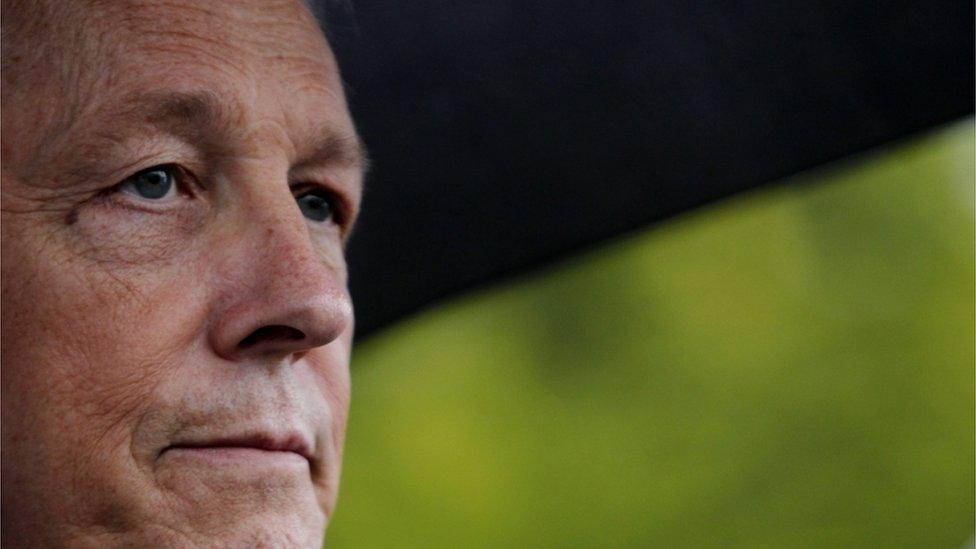
Peter Robinson has stepped down as First Minister
This week, unionists set out demands they want met before they will enter talks.
These kind of "preconditions" and "talks about talks" were a feature of some of the negotiations which took place long before the 1998 Agreement.
It's as if hurdles long since cleared away are now back in place.
The first power-sharing administration ushered in by the 1998 deal was hobbled by crises linked to IRA activity, its reluctance to disarm and Sinn Fein's difficulties in backing the police.
All those obstacles, we thought, had been removed as a result of an agreement , externalreached at St Andrews in Scotland which enabled the Democratic Unionists and Sinn Fein to share power in 2007.
However, the police statement that IRA members may have been involved in the murder of former IRA man Kevin McGuigan has put this progress into question.
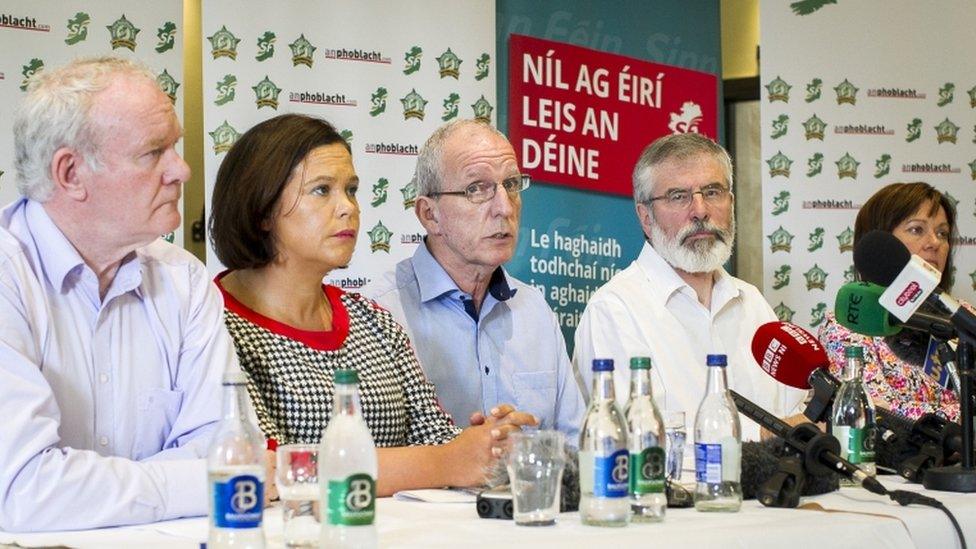
Leading republicans say the IRA no longer exists
Irish republicans argue that, like a butterfly, external, the IRA has fluttered away.
Unionists don't buy the colourful metaphor - they think the IRA still exists and has retained a more deadly sting than republicans admit.
The politicians have surmounted bigger challenges before.
Maybe the reinstatement of something like the old Independent Monitoring Commission, which monitored the paramilitary ceasefires between 2004 and 2011, will provide a way forward.
The government is giving it "serious consideration".
However, the power-sharing administration faces other challenges in providing efficient government during a time of austerity.
Giving every significant party a role in the Stormont coalition looked like a strength back in 1998, ensuring everyone bought into the peace deal.
Now it seems a cumbersome arrangement, prone to deadlock and stalemate.
Shackled together
Politicians with radically different views on the economy, society and whether Northern Ireland should be British or Irish find themselves shackled together in coalitions, trying to make unwieldy compromises after each election.
Diagnosing the problem is one thing, coming up with a workable alternative is quite another in a region where historic differences make a government elected on a straight majority no longer an option.

Why is the stability of the Northern Ireland devolved government under threat?
For months, the power-sharing executive at Stormont has been deadlocked over budgetary matters.
Underlying this disagreement was Sinn Fein's refusal to implement welfare reforms introduced elsewhere in the UK.
However, the political crisis deepened last month after the police said current IRA members may have been involved in last month's murder of Kevin McGuigan Sr.
He was a former member of the Provisional IRA and according to police, one of a number of suspects in the murder of Gerard Jock Davison, who was shot dead in May.
Unionists argued that if the IRA remains active, Sinn Fein should be excluded from ministerial office.

The latest political developments may be uninspiring for the public, but most would agree the clock must not be turned back when it comes to peace and that downward trend in the casualty graph.
The danger of allowing a vacuum to develop at Stormont is that others, be they dissident republicans or loyalist paramilitaries, may seek to fill it.
U2 are calling their European tour Innocence + Experience, external.
We've had a mixed experience of power sharing in Northern Ireland since I last saw U2 in Belfast.
Maybe the Stormont politicians need to rediscover some of the innocence and optimism of 1998 as they try to find not just a short-term fix, but a way to guarantee a more stable long-term future.
- Published13 November 2015
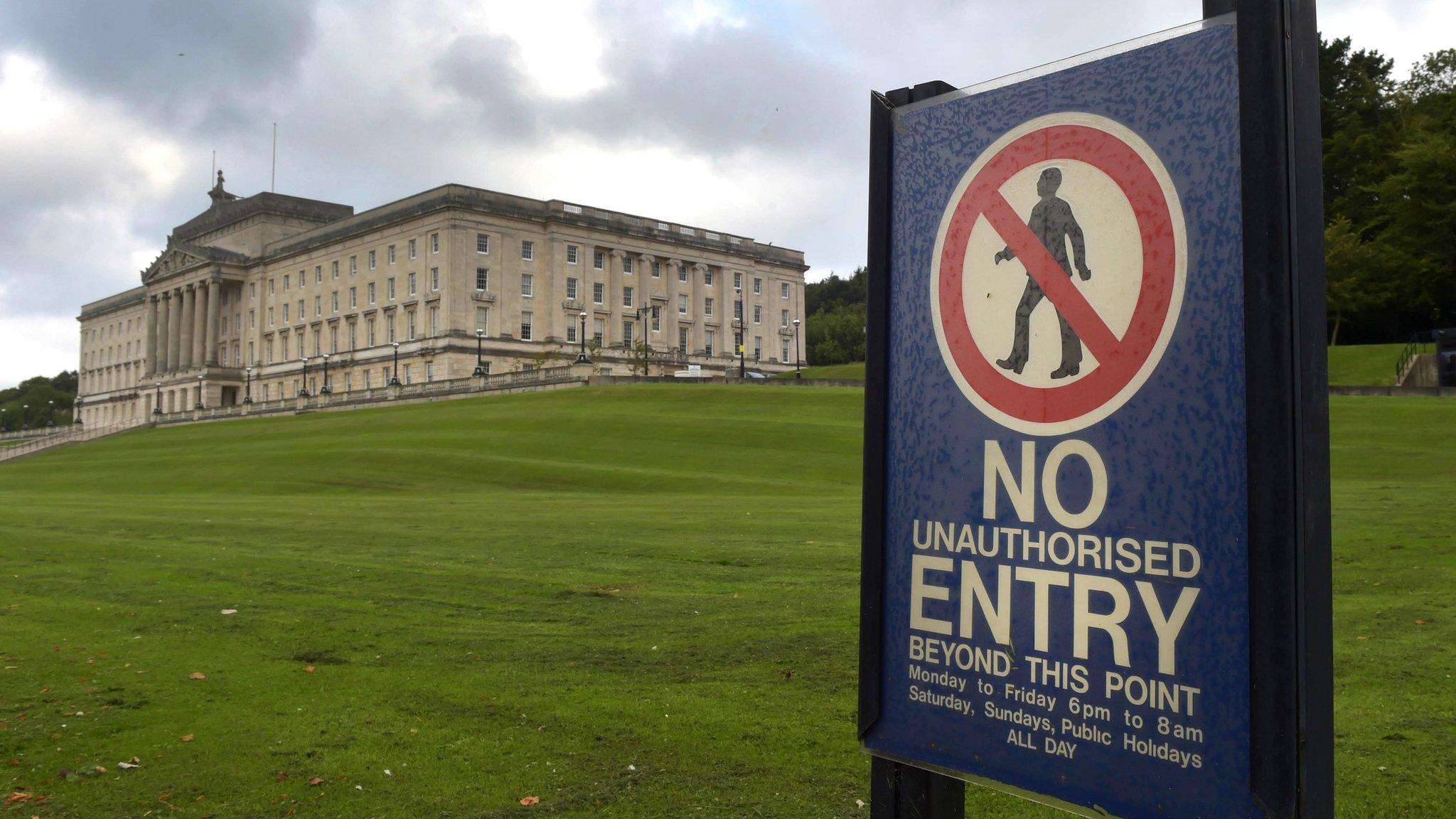
- Published11 September 2015
- Published11 September 2015
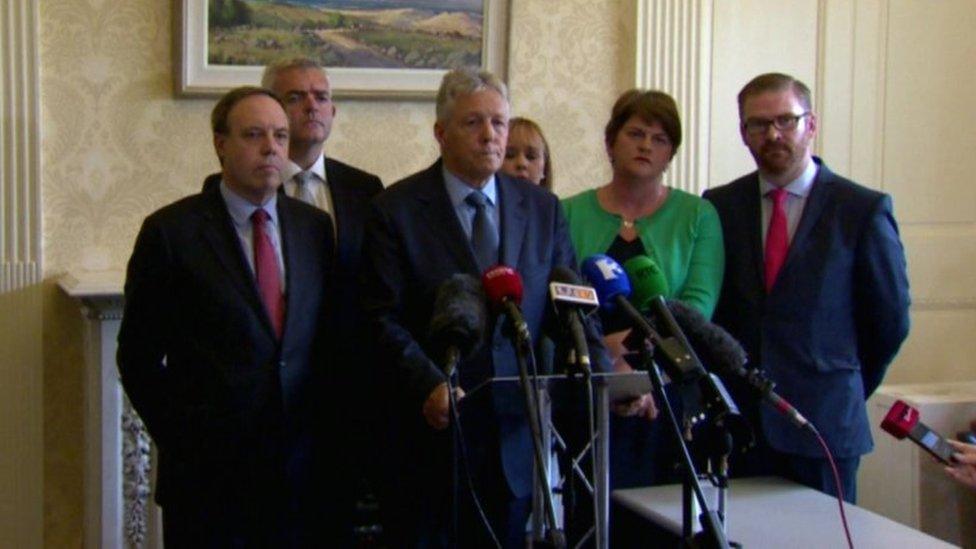
- Published11 September 2015
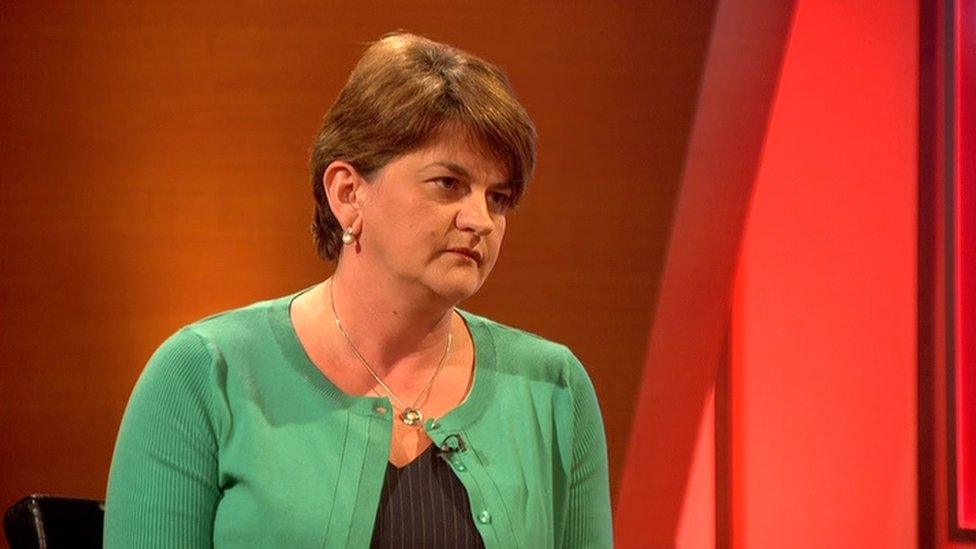
- Published10 September 2015
